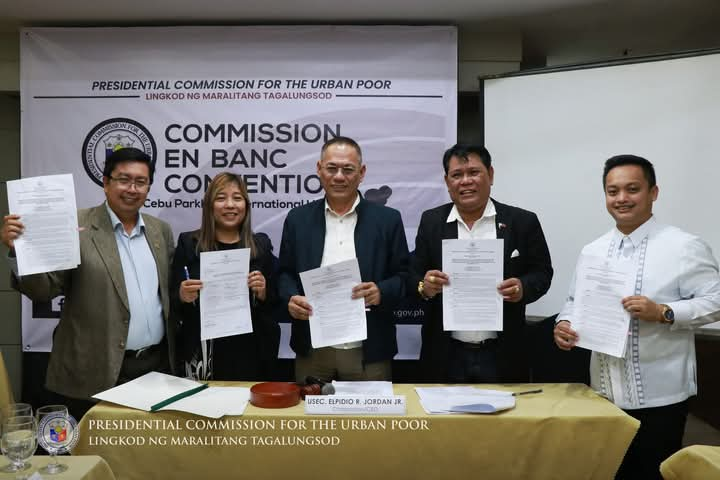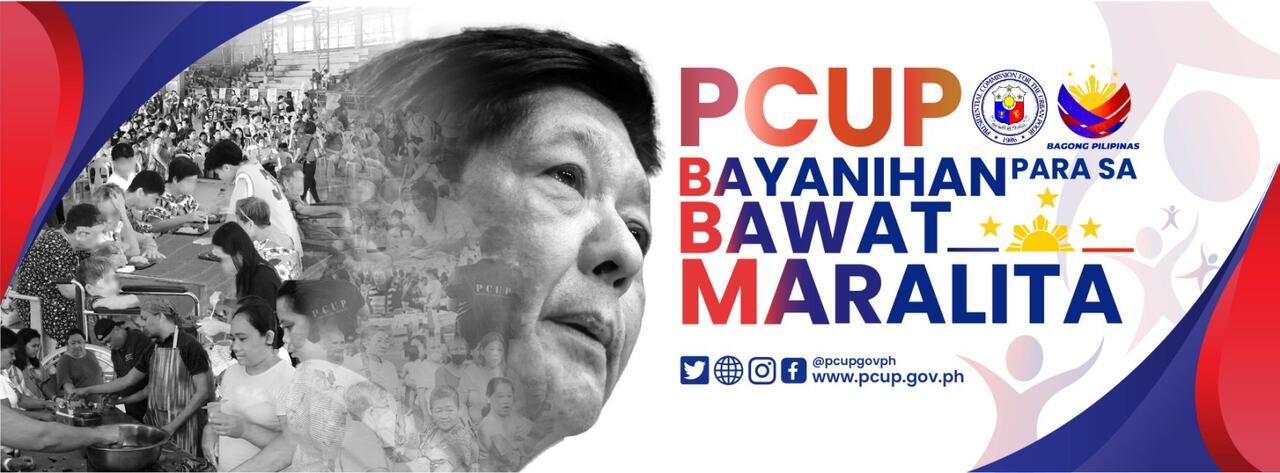The Bahay Ko, Piso Mo” program—also referred to as “Piso Ko, Bahay Mo” is a housing facilitation and linkage initiative launched by the Presidential Commission for the Urban Poor (PCUP) to assist urban poor families (UPFs), especially the informal settler families (ISFs) and those affected by court-ordered demolitions and evictions, by helping them gain access to decent housing. The program links the private sector with displaced communities to provide land and homes with basic amenities with the goal of supporting low-income families through savings and resource mobilization and by helping them rebuild their lives with dignity and stability. It was meant to offer a concrete housing solution for vulnerable communities and promote collaboration between government, businesses, and civil society.
If you are interested, this guide will walk you through what the program is about, how it works, and most importantly—how to apply for housing under the Bahay Ko Piso Mo Program.
Program Overview

The “Piso Ko, Bahay Mo” program developed by PCUP is not a direct housing construction project by the government, but rather a coordinated effort involving the private sector. Under this program, the PCUP works with private companies to mobilize land and resources where homes with complete amenities can be built for eligible families.
The homes provided through this scheme are not temporary shelters—they are designed to improve the living conditions of poor families by offering long-term, dignified housing solutions.
Key Objectives
It focuses on:
- Helping urban poor families (especially those with no homes or facing eviction)
- Building livable housing communities with complete amenities
- Linking private sector resources to housing efforts
- Mobilizing community savings and support
- Coordinating with LGUs and other stakeholders
Features and Benefits
Here are the key features of the program:
- Target Beneficiaries: Urban poor families (UPFs), especially those without homes due to demolition or eviction orders.
- Private Sector Collaboration: The program works with businesses and private landowners to allocate land and help build homes for eligible beneficiaries.
- Low-Cost Housing: Homes may be offered at symbolic costs through savings mobilization.
- Complete Amenities: Housing developments under this scheme come with basic utilities and facilities.
- Community Integration: Aims to foster self-sustaining communities with access to services, livelihood, and long-term development.
Some of the benefits it offers include:
- Access to Secure Housing: Provides decent homes for urban poor families, especially those displaced by demolition or eviction.
- Collaboration with Private Sector: Connects UPFs to land and housing opportunities made possible through partnerships with businesses and private developers.
- Homes with Basic Amenities: Ensures that the housing units come with necessary facilities such as water, electricity, and sanitation.
- Savings Mobilization Support: Encourages families to participate in savings schemes to help them gradually afford housing costs.
- Resource Mobilization through LAM (Lingkod Agapay Maralita): Offers additional assistance in livelihood, employment, and community development.
- Targeted for Vulnerable Families: Specifically supports those most affected by displacement and lacking access to formal housing programs.
- Nationwide Scope: Plans to expand across NCR, Luzon, Visayas, and Mindanao through partnerships with local government units.
- Community Development: Focuses not just on shelter but on building sustainable, livable communities for urban poor families.
- Support from Goodwill Ambassadors: Gains backing from influential individuals and institutions to attract more aid and awareness.
- Government-Endorsed and Monitored: Overseen by the PCUP, ensuring proper implementation and support for accredited urban poor groups.
Who Can Apply?
The program targets urban poor families, especially those:
- Affected by court-ordered evictions
- Displaced due to demolition orders
- Living in informal settlements
- With no access to safe, decent housing
Families who are already affiliated with or accredited by PCUP-recognized organizations or groups have better chances of being prioritized during selection and screening.
Qualifications
While the program is inclusive and open to all urban poor individuals and families, they still need to at least meet the following criteria:
- Must be Filipino citizens
- Must belong to an urban poor family (UPF) or informal settler family (ISF)
- Must be affected by court-ordered demolition or eviction
- Must lack formal housing or are at risk of homelessness
- Preferably affiliated with a recognized urban poor organization accredited by PCUP
- Must be willing to participate in savings or community initiatives
Note: Applicants are also encouraged to join or coordinate with PCUP-accredited groups to facilitate a more streamlined application process.
How the Program Works
Rather than providing outright funding for housing construction, PCUP acts as a linking agency between urban poor communities and private stakeholders who are able and willing to help. Here’s how it works:
- Identification of Beneficiaries: Priority is given to UPFs who have lost homes due to demolition.
- Private Sector Collaboration: PCUP coordinates with private companies to secure lots for housing.
- Housing Construction: Homes are built on the secured lots with proper amenities like electricity, water, and sanitation.
- Community Integration: The program may also include livelihood support through the Lingkod Agapay Maralita (LAM) initiative to help beneficiaries find work and become economically productive.
Program Partners and Support Network
To make the program work, PCUP collaborates with:
- Private sector companies (for land donation, development, or CSR support)
- Local government units (LGUs)
- Non-government organizations (NGOs)
- Business sector and academic institutions
- PCUP Goodwill Ambassadors who help promote the program and gather additional support
These partnerships are aimed at pooling resources—not only for housing but also for other support services such as employment, community development, and livelihood assistance.
Required Documents
Before visiting the PCUP office, make sure to prepare the following:
- Public Assistance Form
- Certificate of indigency or low income
- Barangay clearance or residency
- Proof of displacement (e.g., demolition order)
- ID photos and valid IDs
- Endorsement from an accredited community organization
Note: You may also be asked to submit additional documents (e.g., barangay certificate, demolition notice, family profile) depending on your situation.
Procedures
While the full application system may slightly vary depending on the local PCUP office or community organization, here’s a general guide:
Step 1: Check Your Eligibility
Make sure you meet the basic requirements.
Step 2: Contact PCUP or Your LGU
Reach out to the PCUP Regional Office or your local government unit to inquire about:
- Current or upcoming housing projects under the Bahay Ko Piso Mo Program
- How to submit your interest or register as a potential beneficiary
- Accreditation procedures for urban poor organizations (if applicable)
Note: Accredited groups are often prioritized during selection, so if you’re part of an ISF organization, encourage your group to apply as a whole.
Step 3: Visit the PCUP Office
- Log Your Name at the Client’s Logbook
Step 4: Fill Out the Client Routing Slip
- Get a Routing Slip and fill in the required details.
Step 5: Consultation with the PCUP Public Assistance Officer
- Discuss your concern or housing need with the on-duty Officer.
- If you don’t have a request letter yet, they will assist you in preparing one using the PCUP’s standard form.
- You will then be referred to the appropriate division or unit.
Step 6: Referral to Concerned Division or Unit
- Speak with the assigned division that handles housing facilitation or coordination with private sector partners.
- This step often involves a review of your situation and supporting documents.
Step 7: Screening and Validation
PCUP and its partners will screen applications and may conduct community visits to validate the applicant’s living situation. Priority is usually given to the most vulnerable families.
Step 8: Wait for Matching and Allocation
Once a suitable project site is available and your application is approved, you will be matched with a housing unit. You may be asked to:
- Sign agreements or commitments
- Participate in community savings or build activities
- Attend follow-up seminars or workshops
Step 9: Move-In and Post-Relocation Support
Once your unit is ready, you can move in. PCUP and partners may also offer:
- Livelihood training
- Financial education
- Community building programs
Step 10: Feedback Form Completion
- After assistance has been provided, complete a Feedback Form to rate your experience and share comments.
Where to Apply
Applications may be submitted at the nearest PCUP office or satellite branch. As of writing, PCUP is expanding its regional coverage through partnerships with local government units (LGUs) across the country, particularly in highly urbanized areas.
You can also inquire about the program through:
- Official PCUP website
- Social media pages
- Accredited urban poor organizations
Tips for a Successful Application
To ensure that you can successfully apply for the program, keep these tips in mind:
- Be proactive—regularly check with PCUP and your LGU for updates
- Join or form an accredited community organization
- Participate actively in meetings and saving programs
- Keep all your documents updated
- Attend orientations and briefings to understand your role as a beneficiary.
- Application is free of charge.
- Make sure to deal only with official PCUP representatives or accredited urban poor groups.
- Keep copies of all submitted forms and correspondence.
Video: Understanding PCUP
The PCUP Bahay Ko Piso Mo Program is more than just a housing initiative—it’s a community-driven solution that connects urban poor families with real opportunities for long-term shelter, security, and stability. So, if you or your community is facing displacement, consider reaching out to PCUP. After all, the PCUP’s main objective for its existence is to help low-income families living in cities improve their lives by making it easier for them to access affordable housing, jobs, and basic services.
Contact Information
For inquiries, contact your nearest PCUP office or visit their official website and social media pages.
Presidential Commission for the Urban Poor (PCUP)
- Main Office Address: 10th and 18th Floor The Upper Class Tower, Quezon Avenue cor. Scout Reyes St., Brgy. Paligsahan, Quezon City
- Contact Number: (02) 8-362-0220 / (02) 8-365-2499
- Email Address: chairman@pcup.gov.ph
- Official Website: https://www.pcup.gov.ph/
- Official Social Media Pages
- Facebook Messenger: https://m.me/pcupgovph
- Instagram: https://www.instagram.com/pcupgovph/
- X (Twitter): https://twitter.com/pcupgovph
